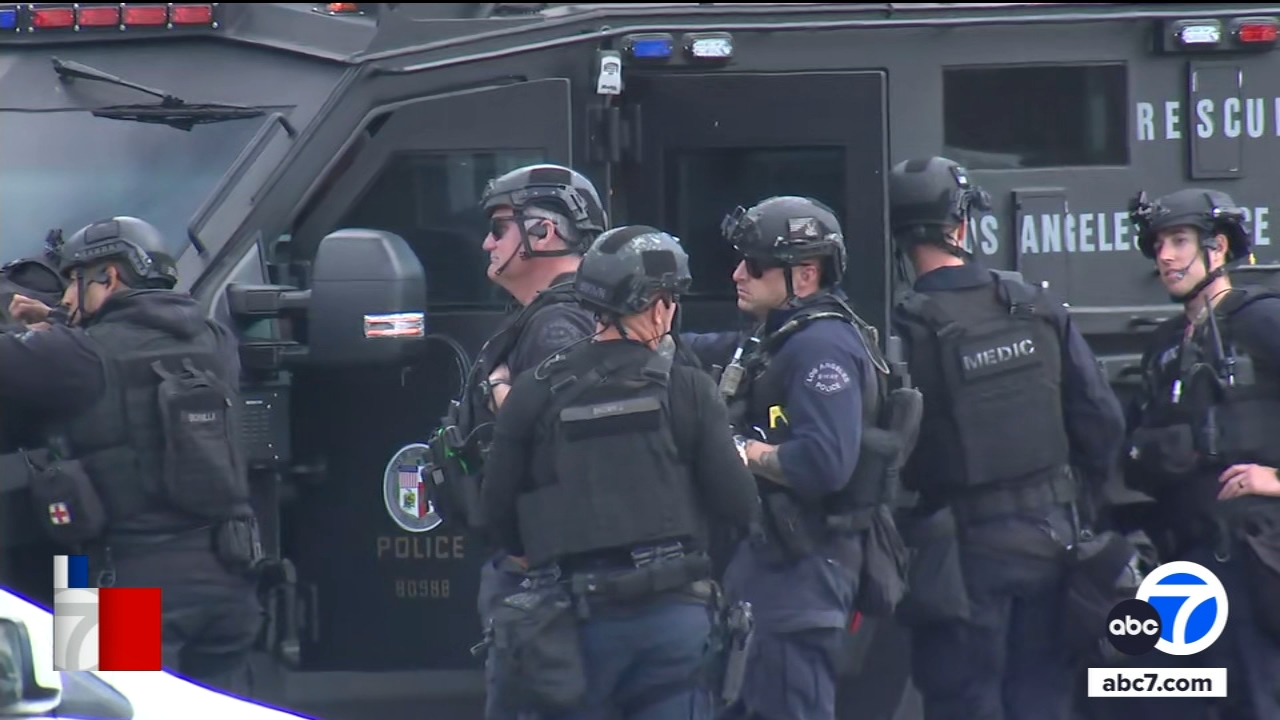LA Deputy James Sexton convicted of obstruction of justice


LOS ANGELES (KABC) -- Los Angeles County Sheriff's Deputy James Sexton was found guilty of conspiracy and obstruction of justice Tuesday in a federal retrial that's raised questions about what top sheriff's department leaders knew about the plan to hide an FBI informant.
Sexton, 29, is now the seventh sworn sheriff's department employee to be convicted for his role in an operation prosecutors describe as a wide-ranging conspiracy to quash a federal investigation into abuse and corruption inside Los Angeles County jails. Jurors deliberated for less than two hours.
Sexton's first trial ended with a hung jury in May. Jurors were "hopeless deadlocked" with their vote split 6-6. Prosecutors decided to retry Sexton after winning convictions against six co-defendants in a separate trial that ended in early July.
Prosecutor Liz Rhodes told Eyewitness News, "I think our evidence was strong from the beginning and so we thought that we should try it again and that proved to be the right decision."
Co-defendants Greg Thompson, Steve Leavins, Scott Craig, Maricela Long, Gerard Smith and Mickey Manzo will be sentenced on Monday.
"This case involves a select group of sheriff's deputies who were tasked with ensuring safety and security within the jails, but they violated the law by trying to protect their department from federal scrutiny," Acting United States Attorney Stephanie Yonekura said outside the federal courthouse Tuesday. "This case, which has now resulted in the convictions of all seven charged, proves those who tarnish their badge and their oath will be brought to justice."
The events that led to the convictions unfolded in the summer and early fall of 2011 after sheriff's deputies found a contraband cellphone on Men's Central Jail inmate Anthony Brown.
Brown, a career criminal who'd recently been sentenced to 423 years in prison, was acting as an informant for the FBI as part of their civil rights investigation into the jails.
The phone belonged to the FBI and was smuggled into Brown through a corrupt deputy as part of an undercover operation.
Federal prosecutor Liz Rhodes told jurors in closing arguments Tuesday that the FBI investigation had uncovered what they believed to be a systemic and widespread pattern of abuse and cover-ups.
"So the FBI thought they might be looking at a group of thugs and criminals," Rhodes told the jury. "The only difference was that these potential thugs and criminals had a badge."
Once sheriff's department investigators learned that inmate Anthony Brown was working with the FBI, his name was changed, his records jacket was hidden, and computer records were altered to make it appear he'd been released from LASD custody. In fact, Brown was guarded around the clock by deputies, moved to various locations within Men's Central Jail and then to a station jail in San Dimas.
Defense attorney Tom O'Brien told jurors in closing arguments that Sexton followed "lawful orders given by senior law enforcement personnel to protect the safety of Anthony Brown" because Brown was now known as a snitch and his life could be in danger.
O'Brien described Sexton's role in the operation as "babysitting" inmate Brown and pointed out that Sexton had no part in the other phase of the operation which included the investigation of Brown's FBI handlers and the threat to arrest of Special Agent Leah Marx.
Sexton was "not a thug, not a criminal, not a goon. He did his job," said O'Brien.
Testimony throughout the trial indicates that then Sheriff Leroy Baca and then-Undersheriff Paul Tanaka were briefed regularly about the operation and did not raise any concerns about how it was being handled.
Tanaka, who is running for L.A. County Sheriff, testified that he and Baca issued orders to keep Brown safe from any harm, but left the details up to lower-ranking employees.
"This isn't a secret, smoky plot," O'Brien told the jury. "Overtime for the deputies was approved by Tanaka and Baca. Who ordered this security? Baca and Tanaka. Keep him safe."
O'Brien reminded jurors that higher-ranking officials like Baca, Tanaka and former ICIB Captain Tom Carey have not been indicted in this case. Federal prosecutors, however, have previously described their investigation into obstruction of justice as "ongoing."
"Here's the message: to the extent that you're following orders if you know that they're unlawful, you're going to be charged," prosecutor Brandon Fox told Eyewitness News.
"And if you're charged, you're going to be convicted. And if you're convicted, you should talk to us and tell us if there's anybody else who ordered what you did."
Deputy Sexton, who in 2011 had been on the job for less than three years, cooperated with the FBI and the U.S. Attorney's office for more than a year before he was indicted in late 2013.
In Sexton's first trial, information came to light that Sexton had 37 "documented contacts" with federal investigators as they put their case together. Testimony about much of that cooperation was excluded by the judge in Sexton's retrial.
"I think the evidence established that what he did was admit his own conduct, and that's a confession right there," said Fox.
"His cooperation involved him admitting that he committed obstruction of justice. And if you commit obstruction of justice you are going to be charged and you are going to be convicted."
Deputy James Sexton will be sentenced on Dec. 1 by Judge Percy Anderson.








